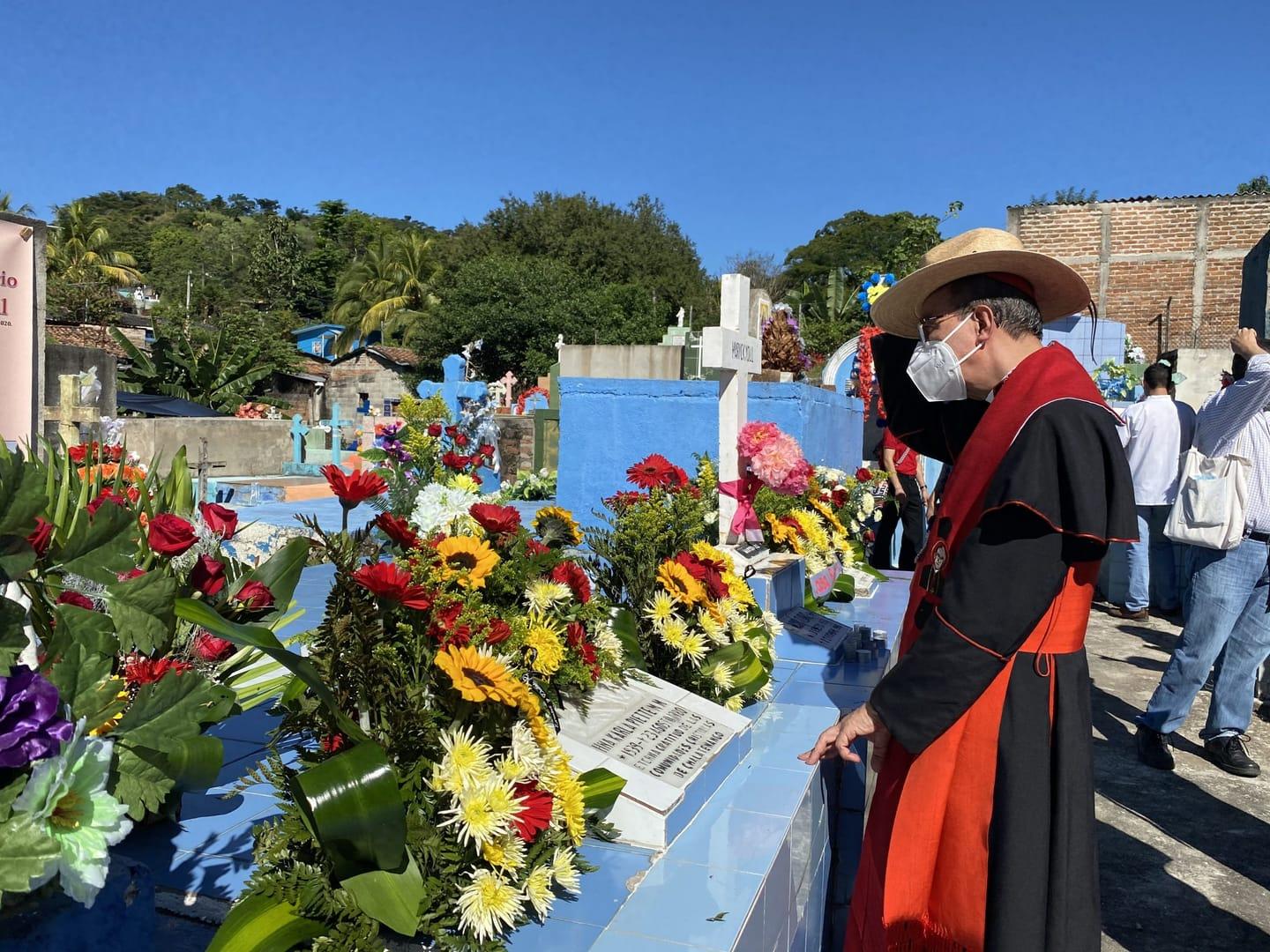CHALATENANGO, El Salvador — In one of the regions of El Salvador most battered in a bloody war funded by American dollars, four Catholic women from the U.S. were hailed as examples of solidarity, of Christian faith and martyrdom, as Salvadorans remembered them Dec. 2, the 40th anniversary of their assassination.
“Sometimes we only see history from one point of view,” said Bishop Oswaldo Escobar Aguilar of Chalatenango, where Maryknoll Sisters Maura Clarke and Ita Ford served. “But a government is one thing and people are another.”
Along with Ursuline Sister Dorothy Kazel and Jean Donovan, a laywoman, the Maryknolls were raped, killed and thrown in a common shallow grave in the Central American nation Dec. 2, 1980, after being abducted by Salvadoran military on their way home from the airport. The four had often collaborated, shuttling children and civilians to safety, bringing them food and clothes as war was about to erupt in El Salvador.
“The people of the United States showed a lot of solidarity with our people,” and the women showed what that effort looked like, Escobar said.
For the poor in Chalatenango, that solidarity came in the form of the two Maryknolls. The nuns, inspired by Archbishop Oscar Romero, now a saint, put their lives at risk and ultimately lost them for the poor, said Father Alfredo Rivera. He met the Maryknolls sisters as a young man in Chalatenango, months before they were killed.
Sometimes he would ask Ford, with whom he was close, how things were going, Rivera recalled during a Mass for the Martyrs of Chalatenango, where the women have been included as focal points of the observation for years. She replied, “It’s difficult,” he recalled.
“But she said they had to help people, the poor, figure out how were going to clothe them, feed them, get medicine for them,” Rivera said.
The women could have easily left but they made a conscious decision to stay, he recalled.
“They were a testimony of people of prayer, a testimony of service,” Rivera said. “They were humble, simple, had great generosity. They deeply marked our lives.”
And even in death, they didn’t abandon Salvadorans, Rivera said about the Maryknoll custom of being buried where they died.
Four decades after the women’s murders, even a pandemic did little to discourage those who wanted to pay homage to them. In small groups, some visited the tomb of the Maryknolls, but also brought by photos and banners that included the other two women who died with them.
Seminarians from the diocese stopped to play songs in the cemetery in Chalatenango, during a ceremony joined by Cardinal Gregorio Rosa Chavez, who kissed the plaque of Clarke and quietly prayed before the tomb. Others placed photos and posters of other Salvadoran Catholics who also died during the conflict, including soon-to-be-beatified Franciscan Father Cosme Spessotto and Jesuit Rutilio Grande, along with two lay companions who died with him when he was shot.
The Salvadoran bishops chose to end their Jubilee Year of Salvadoran Martyrs with the Mass in Chalatenango, placing special focus on the U.S. women. The women were not the only notable deaths in the church in 1980. Romero and Spessotto were violently assassinated that year, as well as a group of more than 600 civilians, hailed as martyrs.
“Martyrs are those who walked in the footprints of Jesus,” Rosa Chavez said during the Mass. “And the U.S. women represent that in this country.”
Though born elsewhere, the women incarnated the rampant persecution of the country’s civilians, many of them Catholics, said Escobar, who also lost two family members — a sister who was disappeared and a brother who was assassinated — during the conflict.
Chalatenango, in particular, was a “seat of ecclesial persecution,” of catechists, ministers, and other members of the church who were killed because they believed in the cause of social justice, the bishop said. But Salvadorans, as the U.S. women showed, were not alone in that fight for justice in the country, he said.
The celebration showed the importance of citizens of other countries who left behind homes and safety to be present in that fight, Escobar said.
“In this martyrial Salvadoran church, Spain, Italy and the United States were present,” he said. “We can’t lose sight of that, because you can’t go where you’re headed if you don’t know where you’ve come from. And we will never forget these martyrs, our brothers and sisters.”













